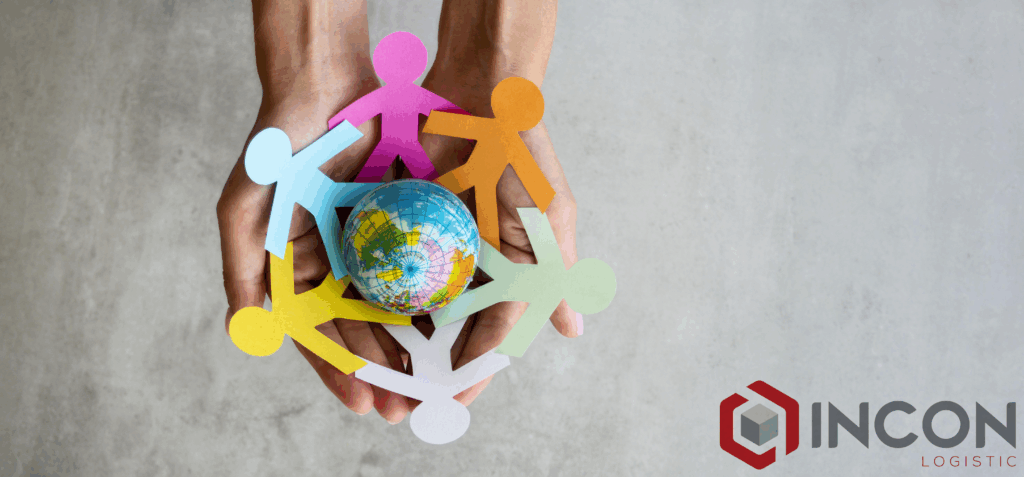Every year, on the second Saturday of May—this year, on May 10—the world celebrates World Fair Trade Day. The Fair Trade movement aims to establish a more just and sustainable global trade system in which producers, workers, and partners operate under fair conditions and receive appropriate compensation for their work.
Although fair trade is often associated with the food industry or artisanal products, in reality, it affects the entire supply chain—meaning logistics plays a key role in turning the principle of fairness into everyday practice. In this article, we explore what fair trade means in the world of logistics and how a service provider—such as INCON—can contribute to a more equitable system.
What Does Fair Trade Mean – Beyond Coffee and Chocolate?
Fair trade was originally established to support small-scale producers, primarily in developing countries, where many grow coffee, cocoa, tea, or other agricultural goods. Over time, however, the movement has grown to encompass much more: fairness now extends to working conditions, environmental sustainability, and global cooperation. The goal is to ensure that profit is not concentrated in the hands of a few but distributed fairly among all participants—including those working behind the scenes, such as in the logistics chain.
The Invisible but Critical Role of Logistics
Logistics is often invisible to the end consumer, yet it is essential for ensuring that products arrive at their destination safely, on time, and in good condition. A well-organized supply chain not only supports efficiency but also reduces waste, minimizes environmental impact, and allows producers to truly participate in global markets.
In a fair supply chain, it’s not enough for the product to bear the right certification. The values of fair trade—transparency, ethical working conditions, environmental responsibility, and long-term partnerships—must also be upheld throughout the shipping process.
When Fair Trade Is Only Fair on Paper
It is not uncommon for a product to meet fair trade certification requirements while the logistics processes behind it fail to reflect these principles. Consider a certified product that is shipped through warehouses operating under exploitative conditions, overburdened subcontractor chains, and unsustainable methods. In such cases, the credibility and purpose of fair trade are quickly undermined.
Fairness must therefore extend beyond production and packaging—it must be present at every level of the supply chain.
INCON’s Response: Green and Ethical Logistics
INCON’s mission is to interpret logistics not solely through speed and efficiency but also through the lens of responsibility. We believe that building a sustainable future requires not only innovation but also a value-driven approach. That is why we are developing green logistics solutions that reduce environmental impact, improve transparency, and strengthen long-term, equitable business relationships.
For our partners, we offer not only fast and secure freight services but also logistical support that takes ethical and environmental considerations into account—be it warehousing or transport route optimization.
The Future of Logistics Is Fairer
The essence of the fair trade movement lies not in labels but in mindset. The global market needs actors who aim not only for profit but also for value creation—under fair conditions. Logistics, as the economic lifeblood of the world, plays a vital role in this process.
At INCON, we are committed to offering services that align with these values—because we believe that business is only truly sustainable when it benefits everyone.
Learn more about our green logistics solutions and discover how we can help your business operate not only efficiently but also ethically.

